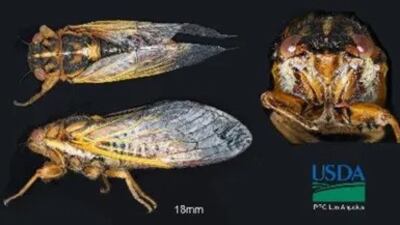U.S. Customs and Border Protection (CBP) agriculture specialists at Los Angeles International Airport (LAX) have had a busy year, intercepting a wide variety of foreign pests in shipments of fresh-cut flowers from countries including Colombia, India, the Netherlands, New Zealand, Portugal, and Tanzania.
Since November 2023, specialists have identified numerous “first in the nation” and “first in the port” invasive species that could threaten American agriculture if allowed to spread.
Among the invasive species intercepted were Kikihia angusta, a cicada from New Zealand; Adetaptera ovatula and Zorion guttigerum, long-horn beetles from Central America and New Zealand, respectively; Uroleucon jaceae, an aphid from Europe and Central Asia; and Steirarhinus depressicollis, a weevil from South and Central America.
Each of these species presents unique threats to American crops and plants. Long-horn beetles, for instance, can damage forests and agriculture by boring into plant stems and wood, while aphids can spread plant diseases and weaken plants by feeding on their sap.
“These invasive species are among the many threats to American agriculture and natural resources,” said Cheryl M. Davies, CBP Director of Field Operations in Los Angeles. “Through targeting, detection, and interception, CBP agriculture specialists work to prevent these threats from entering the United States.”
©2024 Cox Media Group








